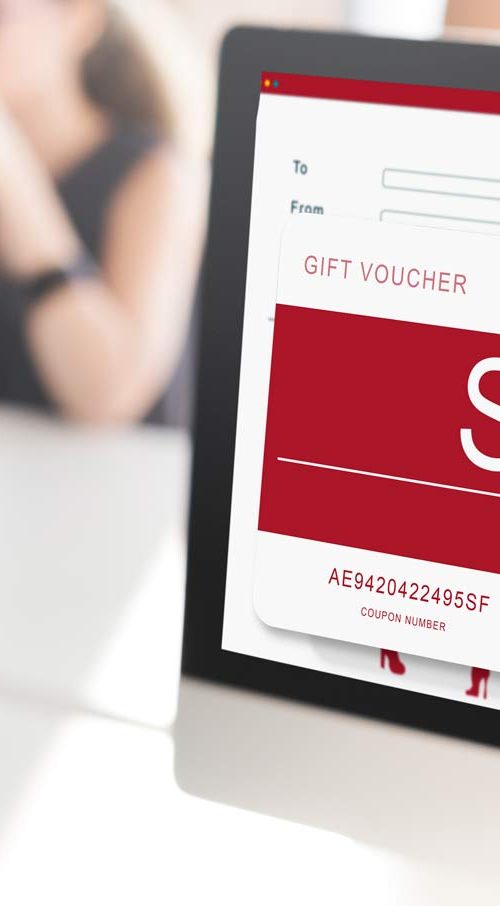Comprehensive Guide for Business Owners on Debt Consolidation Loans
Managing various types of debt—including credit card balances, overdraft accounts, and traditional loans—can pose a significant challenge for business owners. As the burden of debt increases, the financial pressure escalates, necessitating greater resources to handle multiple payments efficiently. Debt consolidation loans for the self-employed offer a strategic solution, allowing entrepreneurs to merge all their debts into a single loan agreement. This simplification results in one monthly payment, a single interest rate, and dealing with only one lender, which greatly reduces administrative hassle and provides enhanced financial clarity.
In 2021, analyses indicated that UK businesses could potentially confront unsustainable debts ranging between £97 billion and £107 billion, as reported by TheCityUK in the Sunday Times. This staggering figure underscores the critical need for business owners to investigate effective debt management tactics, ensuring a smoother navigation through their financial obligations.
Detailed Insight into the Mechanics of Business Debt Consolidation Loans
A business debt consolidation loan serves as a financial instrument that enables companies to secure new funding for the purpose of settling outstanding debts. This approach effectively combines multiple debts into a single, more manageable loan, simplifying the repayment structure for business owners. By engaging in debt consolidation, businesses can alleviate the stress associated with juggling various payments, allowing them to concentrate on operational expansion and overall management of their enterprises.
When pursuing debt consolidation loans, it’s imperative to seek out lenders that provide competitive interest rates that are lower than the total rates of your existing debts. This ensures that the consolidation process genuinely benefits your financial health and contributes to long-term sustainability.
Examining the Challenges of Repaying Government-Backed Loans
A substantial portion of the estimated £38 billion in business debt originates from government-supported COVID-19 loan initiatives. Over 910,000 businesses have taken advantage of these financial programs; however, numerous businesses may face difficulties in repaying these loans. This challenge not only presents serious problems for the businesses involved but also influences broader economic recovery efforts throughout the nation.
In response to these obstacles, British banks are being urged to fast-track their preparations for effective debt recovery strategies while enhancing staff training to better manage debt disputes. Moreover, business owners must critically assess their management strategies for multiple debts to ensure they maintain financial stability and operational viability.
Evaluating the Feasibility of Business Debt Consolidation for Your Company
In straightforward terms, yes; consolidating business debt is entirely feasible.
Running a business in today’s unpredictable economic climate presents unique hurdles. For small to medium-sized enterprises, sustaining a healthy cash flow is essential, especially for those involved in business-to-business transactions or sectors that experience seasonal variations.
Unexpected expenses can arise—whether from the need to purchase new equipment or facing sudden price increases from suppliers. When businesses lack adequate cash reserves, they may quickly find themselves overwhelmed by debt, complicating their financial picture.
Often, when confronted with financial difficulties, businesses may consider loans as a primary remedy. However, during economic downturns, some might resort to taking out multiple loans, leading them into a precarious situation known as the debt spiral.
The debt spiral occurs when businesses struggle to meet obligations on numerous financial fronts, causing interest to mount and debt levels to escalate. Managing daily operations is already a challenging endeavor, and when coupled with the pressures of multiple debts, it can become exceedingly stressful. This is where business debt consolidation loans can provide significant relief and assistance.
Thorough Overview of Effective Business Debt Consolidation Strategies
When unforeseen economic challenges arise, UK businesses often find themselves quickly amassing substantial debt. In such scenarios, a business debt consolidation loan can be an effective solution.
There are numerous formal and informal pathways available to help businesses effectively tackle their debt challenges.
The initial step typically involves consulting with a reputable financial expert who can offer valuable insights into tailored debt consolidation strategies that meet the specific needs of the business.
One potential option is a Company Voluntary Arrangement (CVA), specifically crafted for limited companies facing debt issues. This process is similar to an Individual Voluntary Arrangement (IVA) commonly used in personal bankruptcy cases.
Through a CVA, businesses can negotiate terms with creditors, which may lead to a portion of their debts being written off, thereby extending repayment timelines. This arrangement provides crucial breathing room for businesses to recuperate and restore their financial stability.
While opting for a reduced payoff is not obligatory, it can be advantageous, as creditors may prefer this approach to ensure they receive more over time rather than risk the possibility of liquidation.
An insolvency practitioner oversees the CVA, facilitating negotiations between the business and its creditors while allowing existing management to continue operating the business.
Varied Approaches to Business Debt Consolidation
Business debt consolidation presents the opportunity to combine multiple business loans, overdrafts, and creditor obligations into one cohesive loan agreement. This method not only streamlines cash flow by consolidating payments into one manageable monthly installment but also reduces administrative time and costs, significantly enhancing the efficiency of the repayment process.
Streamlining Business Credit Card Debt through Consolidation
For those managing various business credit cards, a practical solution lies in consolidating these debts into a more organized structure. A business debt consolidation loan offers a unique opportunity to secure more favorable lending terms, potentially lowering monthly payments and freeing up vital capital for operational requirements.
Boosting Cash Flow with Business Cash Advance Debt Consolidation
In certain situations, businesses may require immediate access to cash to maintain healthy operations. Frequently, capital is locked in existing loans and overdrafts, making it difficult to access liquid assets. A business debt consolidation loan can streamline this process by merging various debts into a single payment with a lower monthly obligation, thus enhancing liquidity for critical business functions.
Navigating Bad Credit Challenges in Business Debt Consolidation
As businesses grow, they may accumulate a variety of loans and financing options, resulting in complex repayment structures. This complexity can be further aggravated by a poor credit score, making it challenging to secure additional financing. However, a business debt consolidation loan provides a pathway to simplify debts into one manageable loan with a single monthly payment, thereby enhancing overall financial clarity.
Small Business Debt Consolidation Loans: A Crucial Financial Support
Small businesses are essential to the economy yet often face difficulties during slight fluctuations in demand or foot traffic. For these enterprises, managing multiple loans without dedicated financial staff can be especially challenging. A small business debt consolidation loan combines all outstanding debts into a single loan, simplifying payment management and alleviating financial stress.
Evaluating the Pros and Cons of Business Debt Consolidation
Business consolidation loans come with their own distinct advantages and disadvantages; however, many of the challenges can be effectively addressed and alleviated.
Benefits of Business Debt Consolidation Loans
Strategic Financial Savings via Debt Refinancing
By choosing a refinancing loan with a larger principal and extended repayment period, your business can secure a greater total amount while maintaining similar monthly payments. If you qualify for a lower-interest refinancing loan compared to your existing debts, you will incur less interest over time, ultimately saving your business money. Paying off a mix of current loans or replacing an older loan with a new, lower-interest option can also support improved cash flow each month.
Ensuring Operational Continuity During Financial Challenges
Successful debt consolidation can enhance cash flow and support ongoing business operations while ensuring profitability. By consolidating debts with a single lender, businesses can redirect funds that would typically go towards high-interest payments, facilitating more strategic investments in operations and growth initiatives.
Simplifying Payments for Busy Business Owners
For business owners focused on their operations, managing multiple repayments can feel overwhelming. With a consolidation loan, the focus shifts to a single monthly payment, significantly reducing administrative burdens and allowing owners to concentrate fully on running their businesses effectively.
Enhancing Cash Flow through Prudent Debt Management
With business debt consolidation loans, you are likely to spend less on interest each month, enabling you to retain more cash for essential purchases and investments that drive growth and sustainability.
Boosting Your Credit Score through Improved Financial Practices
By efficiently managing your financial obligations through a single monthly loan payment, you can build a stronger repayment history. This positive track record enhances your attractiveness to lenders and suppliers, increasing your chances of obtaining future financing and credit opportunities.
Potential Drawbacks of Business Debt Consolidation
Long-Term Interest Rate Considerations
When consolidating business debt, payments are calculated based on the initial amount owed, which includes both principal and interest. Even if you secure a lower interest rate through a business debt consolidation loan, you may end up paying more in interest over the life of the loan due to extended repayment terms.
Recognizing the Temporary Nature of Debt Solutions
While consolidating debt can alleviate monthly payment pressures, it is critical to address the fundamental financial issues within your business. Implementing a long-term strategy may be required to achieve enduring financial stability and sustainability.
Exploring the Integration of Personal and Business Debt
If you are a freelancer or self-employed individual operating without a limited company, your debts are classified as personal, opening up opportunities for consolidation. However, if your business operates as a limited company, those debts are legally distinct from your personal debts. Consulting with a financial advisor can help evaluate your specific situation and identify viable options for effective debt management.
Consider the example of a plumber working as a sole trader on a significant project that spans over a month, with payment delayed until 60 days post-completion.
This protracted project may prevent the plumber from taking on additional jobs, leading to a cash flow dilemma. During this period, necessary supplies for the job are purchased on credit, and sudden vehicle repairs arise, compounding the financial strain.
As a result, the plumber ends up managing debts from both the garage and the builder’s merchant. This scenario illustrates how personal and business debts can become intertwined, highlighting the importance of self-employed debt consolidation loans to avert financial distress.
Grasping Self-Employed Debt Consolidation Loan Mechanics
For individuals contending with a mix of personal and business debts, a self-employed debt consolidation loan can provide significant relief. This type of loan allows you to pay off creditors and streamline repayments into a single monthly obligation at a lower interest rate than the total of your previous debts. This approach can help restore financial equilibrium, enabling you to focus on generating income rather than managing numerous administrative tasks.
When applying for debt consolidation loans, ensure that your monthly payment is lower than what you currently remit to your existing creditors; otherwise, the consolidation may fail to provide its intended benefits.
Proven Strategies for Successful Business Debt Consolidation
To effectively consolidate business debt, whether stemming from credit cards, overdrafts, or loans, businesses should seek a dedicated business consolidation loan. This financial solution consolidates all outstanding debts into one manageable loan, simplifying repayment into a single monthly payment with one interest rate and one lender, ultimately enhancing financial clarity.
Top Business Debt Consolidation Companies to Explore
Today’s business debt consolidation companies significantly differ from traditional corporate banks. While some banks do offer consolidation loans, there are also specialized companies that cater to a variety of business types, including micro-businesses and SMEs. These lenders often emphasize ethical lending practices and tailor loans to align with specific business circumstances.
Critical Assessment of Business Debt Consolidation Loan Rates
When evaluating a business debt consolidation loan, it is crucial to compare various options, as interest rates can vary widely. Rates may range from slightly over 5% to as high as 36%. By exploring different lenders, you can discover a loan that suits your needs; even if some options come with higher rates, they might still provide the essential financial support required promptly.
Evaluating the Effects of Business Debt Consolidation on Your Company
In situations where your business debt arises from isolated occurrences, a CVA may represent the most effective path to debt relief.
Company directors can prevent liquidation and bankruptcy by adhering to the terms established in the business debt consolidation arrangement.
By employing this strategy, a business can strive for debt freedom within a five-year framework. During the CVA period, interest can be frozen, and additional charges may be halted, making debt repayment more manageable. In certain scenarios, up to 75% of a business’s unsecured debt can be eliminated through a CVA.
A Creditor Voluntary Liquidation (CVL) serves as an alternative to business debt consolidation that many financial counseling agencies might recommend. In this process, parties legally entitled to company assets can identify and distribute these assets during the liquidation process.
During liquidation, the company is dissolved, and the CVL represents a resolution agreed upon by the shareholders. This stage is pivotal; at this point, the company may be too far gone to consider a debt consolidation loan, indicating insolvency and an inability to repay debts fully.
The economic recession has, unfortunately, driven numerous UK businesses into CVL scenarios, a situation that no shareholder or director wishes to confront. A liquidator is appointed to oversee the CVL business debt consolidation process.
The liquidator will hold a meeting with creditors to scrutinize the insolvency claims made by the directors, with creditors formally appointing the liquidator. The liquidator’s responsibilities in the context of business debt consolidation include converting assets into cash, investigating the conduct of company directors, assessing the company’s debts, and facilitating payments to creditors.
Explore Additional Resources: Trending Topics Among Visitors
 Buy Now Pay Later Schemes Currently Under Scrutiny
Buy Now Pay Later Schemes Currently Under Scrutiny




You’ve highlighted a crucial issue that many business owners face in today’s economy. The complexity of managing multiple debt sources can indeed be overwhelming, especially when operational costs continue to rise. I’ve seen firsthand how debt consolidation can serve as a lifeline for small businesses struggling to juggle cash flow while trying to stay afloat. In my experience, it not only simplifies payments but can also often lead to better interest rates when managed correctly.
Debt consolidation loans truly seem like a lifeline for business owners grappling with the often-overwhelming responsibility of managing multiple debts. I appreciate how you highlighted the administrative relief they can provide, especially in a world where we’re already stretched thin with daily operations and strategic planning. I’ve always found that the mental load of juggling several payments, each with varying interest rates and terms, can be just as taxing as the financial burden itself.